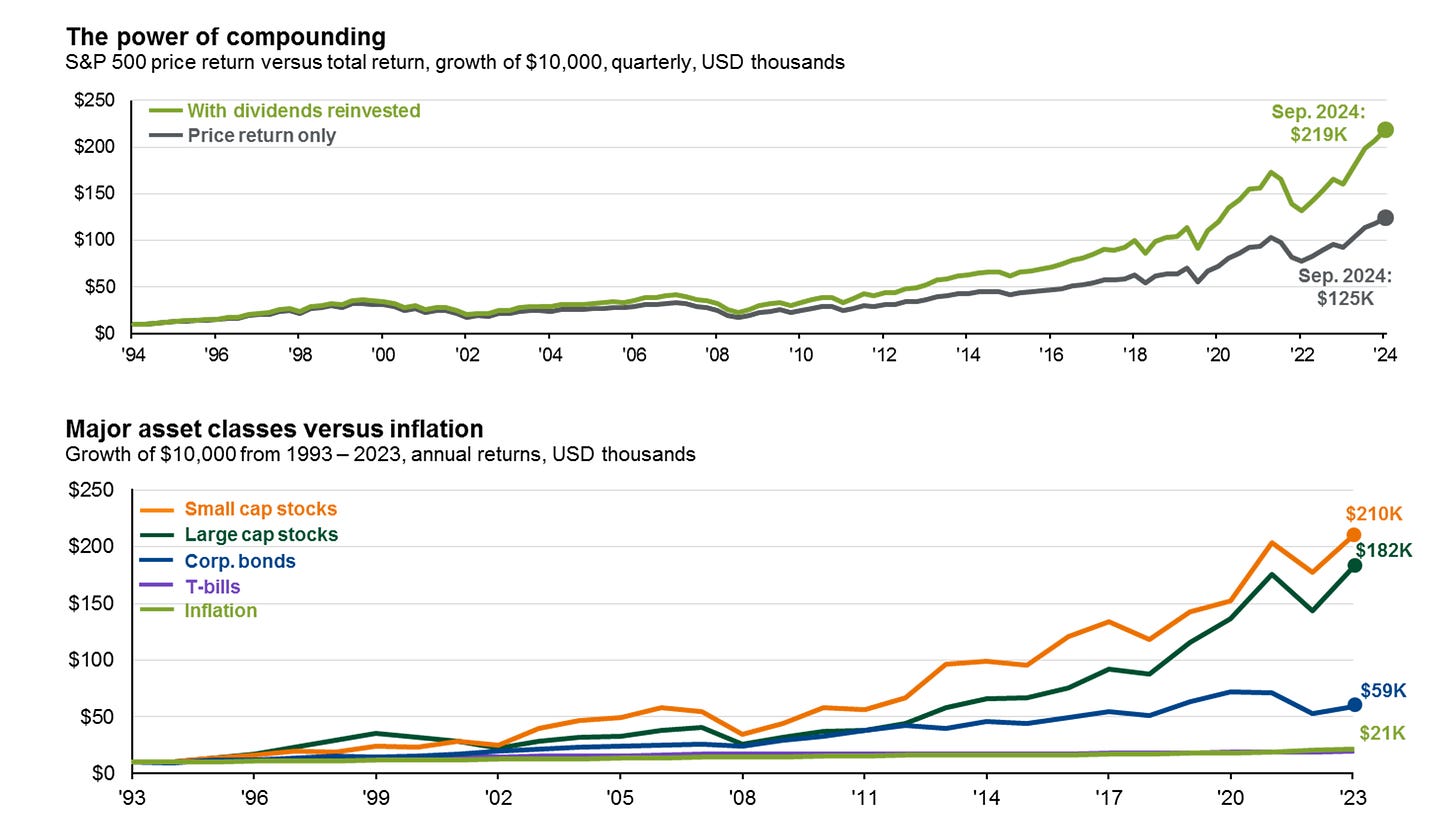
Despite recent rate cuts, the Federal Reserve's dramatic interest rate increases in 2022 have made cash-based investments more appealing than they've been in nearly 20 years. This has led many investors to gravitate towards cash products such as Certificates of Deposit (CDs), seeking both security and income. However, it's crucial for investors to be cautious about falling into the "cash trap."
Historical evidence demonstrates that by avoiding all investment risk, one not only misses out on potential gains but also exposes themselves to a more subtle yet significant threat: the risk of eroding purchasing power. This risk can be particularly deceptive as it doesn't manifest in fluctuating account balances on monthly statements. Let’s take a look at three charts addressing this idea:
Buying Power of the Dollar
The purchasing power of $1 has fluctuated significantly over time due to inflation, economic growth, and changes in consumer behavior. As the US economy has experienced periods of expansion and contraction, the value of a dollar has decreased, allowing consumers to buy fewer goods and services than in the past.
The chart shows the decline in the purchasing power of $1 from 1900 to 2020. This indicates that over time, inflation has eroded the value of the dollar significantly, meaning you need more dollars today to buy what $1 could buy in the past. This erosion of purchasing power has important implications for individuals and families.
The Federal Reserve has stated that their optimal target for inflation is 2%. What that means is that even in so-called optimal times, your purchasing power is cut in half every 36 years. If inflation is running at a rate of 3%, your purchasing power is cut in half every 24 years. And if inflation runs at a rate of 8% as it did in 2022, your purchasing power is cut in half in only 9 years.
A plan is required.
The Power of Compounding
The resurgence of inflation in 2022 was significant, and although its pace is decelerating, it's expected to remain above normal levels for the foreseeable future. This persistent inflationary environment poses a challenge for individuals and families who maintain substantial cash holdings, as they may struggle to maintain their purchasing power in the face of rising costs.
One strategy to address this issue is to reduce cash positions in favor of other investments.
Looking at the past three decades, assets with higher risk profiles have consistently outperformed inflation, while cash holdings have failed to keep pace with increasing prices.
Additionally, investors who choose to reinvest dividends from equity markets may potentially achieve even greater returns. This approach offers a way to potentially preserve and grow wealth in an inflationary environment, although it's important to note that it also involves careful allocation planning.
Don’t Let Inertia Take Over
The recent performance of U.S. equity markets has been remarkably strong. The rapid and robust recovery has led some investors to worry about a potential market correction, causing them to hesitate and remain uninvested. However, this cautious approach of waiting on the sidelines can actually be detrimental to long-term portfolio performance.
While market downturns do occur, they are often followed closely by significant upswings. Analysis of the past two decades shows that an investor who missed just the 10 best days of market performance would have earned only half the return compared to someone who remained consistently invested throughout the entire period.This data underscores the potential risks of trying to time the market. Despite short-term volatility, maintaining a consistent investment strategy often proves more beneficial for long-term investors than attempting to avoid potential downturns.
One Simple Question
Do you know pretty much, exactly how much it is going to take for you to be able to retire comfortably and stay comfortably retired for a very long time?
I can help you figure it out.
Schedule a call or Zoom or send me a message to get your answer.
It does not cost you anything, does not obligate you to anything and it may change your life.





